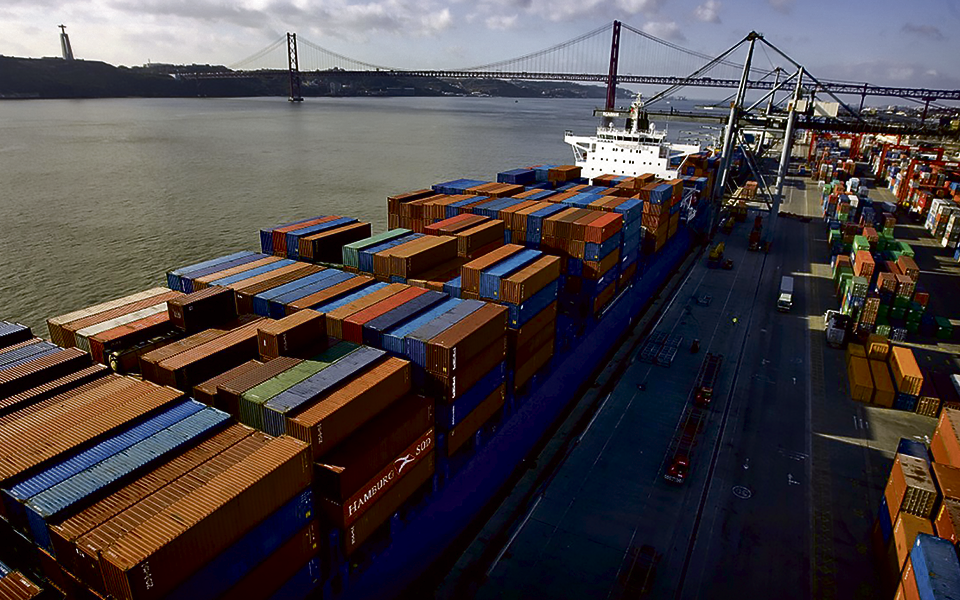The study by Augusto Mateus and the debate promoted by the CCP on “What are Portugal’s economic policies?” He highlighted the need for Portugal to create more brands with global reach and sell high-quality national production well, creating more added value for the Portuguese economy.
Portugal still lacks brands with international recognition, despite efforts to gain market share at the global level in various sectors and export growth. This makes it more difficult to create value in the national economy, which continues to favor sectors with high export flows, but without considering their added value, defended participants in the discussion organized by the Chinese Communist Party – Union of Services and Trade of Portugal.
Under the slogan “What are Portugal's economic policies?”, this Tuesday the Chinese Communist Party promoted a debate based on the study previously presented by Augusto Mateus, university professor and economist, which advocates an approach that focuses more on the value added of each branch than on the value added of each branch. Total value exported The reason behind this analysis is related to the rise in imports in many export sectors, which means lower value creation in Portugal in these sectors, and thus lower accumulated wealth.
Augusto Mateus takes the example of the textile and clothing sector, where he compares, in terms of value added, with sectors that are considered more important for the national economy such as chemistry or electronics: while these latter sectors have a much higher total export value, the value added due to exports is lower. Moreover: in the cases of chemicals, electronics or transport materials, the weight of total flows in exports is greater than the weight of value added, indicating a high preponderance of imported intermediate goods.
“We need to build a new way for Portuguese companies to make money. Our problem is not effort, we are working longer and longer; it is a question of efficiency,” he summed up, speaking of a national economic history in which production tends to “finish too early and start too late.”
As such, the economist considers Portugal a “relatively closed, medium-sized economy,” which contradicts the usual characterization as a small, open economy. The indicator of this low level of openness is, on the one hand, the low export orientation of the economy, and on the other hand, the limited growth of this value in the last two decades: from 21.2% in 1995 to 29.2% in 2018. .
This vision is consistent with the idea expressed by the members of the committee that followed the presentation of the study, which focused on the lack of global companies originating in Portugal. Despite the quality of national production, there is a lack of ability to “build narratives” that captivate consumers, says Paulo Pereira da Silva, CEO of Renova.
“We're great at making things, but we have a little trouble selling them,” he began by highlighting, calling for greater differentiation, especially what creates a relationship with customers. “Our differentiation wasn't about machines or technology, it was about design, considering citizens' preferences and giving them products they might like.”
Henrique Maurescas, Managing Director of IBM Portugal, also highlighted the need to differentiate between Portuguese companies, which cannot continue to compete on prices. In the technology sector, “we couldn't compete on price” when we were competing with countries on the periphery of Eastern Europe.
“Romania outperforms us in terms of price, and so does Poland,” he added. “The only way to differentiate ourselves is through knowledge,” he says, highlighting the importance of partnerships with educational institutions to achieve this goal, by providing human capital tailored to the company’s needs.
“We must be able, at least, to design several possible scenarios and prepare the organization for this scenario,” Antonio Nogueira Leite added, criticizing the lack of a medium- and long-term vision for the national economy as a whole.
“We have to look to the future, as the future involves a lot of technology and services and a lot of creativity and branding,” the economist and university professor predicts, anticipating that “the idea of higher education will intensify,” especially as companies increasingly integrate more services into the production and design of goods and services. .

“Wannabe internet buff. Future teen idol. Hardcore zombie guru. Gamer. Avid creator. Entrepreneur. Bacon ninja.”

